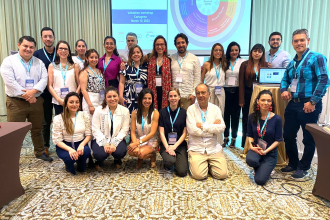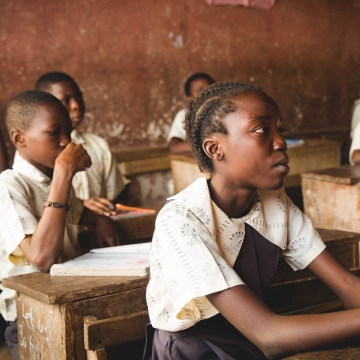
Energy and equality featured in award-winning Duke podcast
"Ways and Means" is a podcast produced by the Sanford School of Public Policy at Duke University, that serves as a space to expose ideas on how to improve society in several areas. In a recent episode…

WinEED training encourages women researchers in Nigeria
WinEED collaborative program has raised hope for more women in Nigeria to participate in grant writing and research activities in the field of environmental economics. Over 20 women researchers in…

An actionable research agenda for the Global South is now finalized
60 researchers from EfD and partner organizations have been working intensely for a year and a half to develop a research agenda to support a low-carbon transition and gender equity in the Global…
Gender - brief actionable research agenda
Addressing gender dimensions of the low carbon transition is core to ensuring a gendered transformative change that is more equitable. Gender equity is thus part of a larger initiative to identify the most promising research issues to support an actionable low-carbon transition in the Global South.
Aim: To ensure that research in support of an inclusive global low-carbon transition (LCT) takes into account gender dimensions in order to promote gender equity.
Gender empowerment and energy access: evidence from seven countries
Gender equity is connected to modern energy services in many ways, but quantitative empirical work on these connections is limited. We examine the relationship between a multi-dimensional measure of women’s empowerment and access to improved cookstoves, clean fuels, and electricity. We use the World Bank Multi-Tier Framework survey datasets from seven countries that include almost 25 000 households in Africa and Asia.
Frameworks, methods and evidence connecting modern domestic energy services and gender empowerment
The world remains far from meeting Sustainable Development Goals 5 (gender equality) and 7 (universal access to modern energy). Energy access may empower women even as empowered women are more likely to adopt and use modern energy services. Such bidirectional linkages are underappreciated in the empirical literature, which typically estimates unidirectional relationships based on simple binary indicators.

EAERE Event | Gender and its Representation in the Professional World | 27 April 2023, Online
Gender and its Representation in the Professional World 27 April 2023, Online, 3:00 PM CEST REGISTER HERE The EAERE DEI executive committee invites you to attend an interactive session on Gender so as…
Pagination
- Previous page
- Page 13
- Next page



